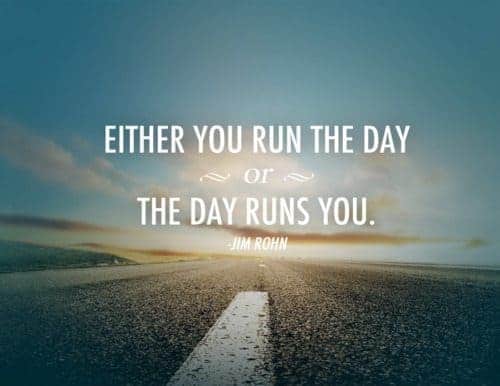Overcoming the Curse of the Overachiever
The term overachiever gets used frequently in today’s world, but what does it mean to be an overachiever?
An overachiever is someone who “performs, especially academically, above the potential indicated by tests of one’s mental ability or aptitude.”
It often becomes an ingrained part of a person’s identity, sometimes without even realizing it.
How do you know if you are an overachiever
Here is an example of what that might look like:
- Wakes up at 6 am to get ready for school
- Has class from 8:10 am-2:10 pm
- Catches bus to afterschool swim practice from 3:30-5:30
- Participates in swim meets every Saturday
- Goes home and eats dinner, and then goes to college classes at night from 6:30 pm-9:30 pm
- Does homework for high school and college in between everything (like on bus to swim class) or late at night.
That was my actual schedule when I was in high school.
“Free time” was a novel concept to me, but what little there was I spent reading.
That is until I decided to add in a part-time job.
And then I started to feel like garbage and kept going to the doctor.
I was diagnosed with “teenage fatigue,” which I interpreted as whiny kid syndrome.
In reality, I was suffering from trauma and anxiety.
I found “healing” in being addicted to being busy, the way some people find healing at the bottom of a bottle.
“Many of us learned that keeping busy…kept us at a distance from our feelings…Some of us took the ways we busied ourselves—becoming overachievers & workaholics—as self esteem…But whenever our inner feeling did not match our outer surface, we were doing ourselves a disservice…If stopping to rest meant being barraged with this discrepancy, no wonder we were reluctant to cease our obsessive activity.” ― Maureen Brady, Beyond Survival: A Writing Journey for Healing Childhood Sexual Abuse
High functioning General Anxiety Disorder
When I first started going to see my therapist, we disagreed over whether or not I had anxiety.
I had thought I had convinced her that I did not have that, and that was the end of it.
I told her, I am just an overachiever.
The conversation looked like this:
I am getting a Masters Degree.
I also chose this moment to decide to relaunch my writing career I had given up on decades ago, all while working full time.
I have two kids too!
Did I mention I started freelance writing, self-publishing on Medium, and that I am also working on my book?
All at one time?
Why not?
I have done things like this my whole life.
Hmmmmm…
I didn’t think any more about this until I saw my diagnostic codes.
GAD.
I couldn’t believe it!
I had been clear that I just liked to accomplish things!
When I asked her, she said there was no doubt I have GAD.
I have a textbook case if “textbook” mental illnesses were a thing.
Prove it, I said.
Then she began to rattle of symptoms of anxiety, and I swear it was like she had spy camera set up in my house and was relaying parts of my day.
Signs of General Anxiety Disorder
- Punctuality (Well, I couldn’t possibly maintain a schedule like this is I was ever late. There is a time for everything)
- Proactive (I have to plan for contingencies so I can make sure all of the things get done. Otherwise, something will knock over my perfect house of cards.)
- Organized (I have 900 lists and calendars, but then I put everything to the last minute and manage to finish everything)
- High Achieving
- Passionate (Completely dedicated to all the tasks)
These attributes do not sound like some curse of the overachiever due to anxiety.
They look like the qualities of successful people.
And then she starts talking about:
- Inability to say no and overloading my schedule (I mean, I get it all done, so there isn’t really a problem with this, right?)
- Mental and physical fatigue (You mean that thing that has plagued me since I was a teenager?)
- Tendency to compare myself to others (How else do I know where the bar is?)
- Failure is a personal attack (Yeah, I don’t handle that well.)
- Becoming a people pleaser (Ok, I almost hate when people are mad at me more than I hate failure.)
At the end of this session, I really couldn’t argue with her or myself any longer.
I bit my nails for nearly 30 years because I couldn’t stop.
Putrid tasting goo, punishments, losing privileges, none of it mattered.
It was as necessary as oxygen.
The anxiety was such a part of me that I hadn’t seem it for what it was.
A curse.
Well, now what?
It is pretty clear that my overachiever behavior is a result of General Anxiety Disorder, and continuing to deny it will not do any good.
Acceptance is the first step, and that’s great, but how can I still keep those positive behaviors in place and manage this to a point where I wear myself down.
I can’t just stop, though…being an achiever is wired so deep into my brain.
It made my grandma happy when I got perfect grades.
She used to throw away my homework if it had too many erasure marks on it, because “we don’t turn it things that way.”
The way I felt when I achieved crazy goals was loved and safe, emotions that were lacking because both my parents effectively abandoned me at age five.
It is confusing and scary to try and teach your brain new patterns of behavior, but we can break this curse!
Here are a few helpful tips:
1. Focus on what motivates you intrinsically.
Don’t just mindlessly complete tasks to check off some imaginary to-do list that you have complicated in your head.
Enjoy the task at hand, because you love it.
Not because you have to achieve a goal or prove anything to anyone.
2. Less is more. Stop trying to do 700 hundred things at one time.
Prioritize your sanity.
Take a rest or a walk or read a book.
Taking care of your mental health will make you more productive in the long run.
3. Silence the voice that whispers you aren’t good enough.
That voice in your head that tells you whatever you are doing isn’t good enough.
Or that other people’s reactions are your fault.
For me, it always seems to say to me I should be more.
Or be further along.
Or do it better.
Practicing mindfulness can help with this one.
So can changing the way you speak to yourself.
4. Ask yourself if this is what you desire.
I find myself in the capstone of a Masters Degree in Management and Leading Teams, less than two weeks from graduation, and I have no idea how I got here.
I don’t want to be doing this with my life.
I want to write.
I have stories that have been shut away for too long and are begging to break free.
Despite what that voice in my head is babbling on about, I am a pretty good writer.
Maybe for you is the quest for more stuff or a bigger and better job.
Ask yourself if whatever price you are paying to achieve these things is worth it, and don’t be afraid of the answer.
5. Embrace the answer, and don’t be alarmed.
You asked the question, and you answered it honestly.
The fear comes next, can you reinvent yourself at this age?
Is it feasible to live a life that is in direct conflict with your need to achieve more?
It is if you can let go of the doubt.
For my overachievers, your mantra is likely: “What else can I do today?”
Consider replacing that for a week with, “What can I do less of today?” and see what happens. ―Adina Silvestri
Believe in yourself
This journey to enjoying your life will likely be one of the hardest things you do, but I know it will be truly worth the effort.
You can think of it as performing above the average potential if you need to.
It takes an extraordinary person to realize they have a problem, work to teach themselves better habits, and reach fulfillment in their lives.
If anyone can do it, I think it is you and I, my fellow overachiever’s curse mate.
What is one more challenge on the list, right?
I will leave you with some final words of wisdom from an unknown author:
“Never compare yourself to others. Only compare the person you are today to the person you were the day before.” ― Unknown Author












Tanya Seymour
April 16, 2020 at 7:20 PM
Wow this article speaks volumes, so well written and really tells the truth. Makes me second guess alot of my current actions and my “go go go” lifestyle. Thank you for putting things into perspective!!